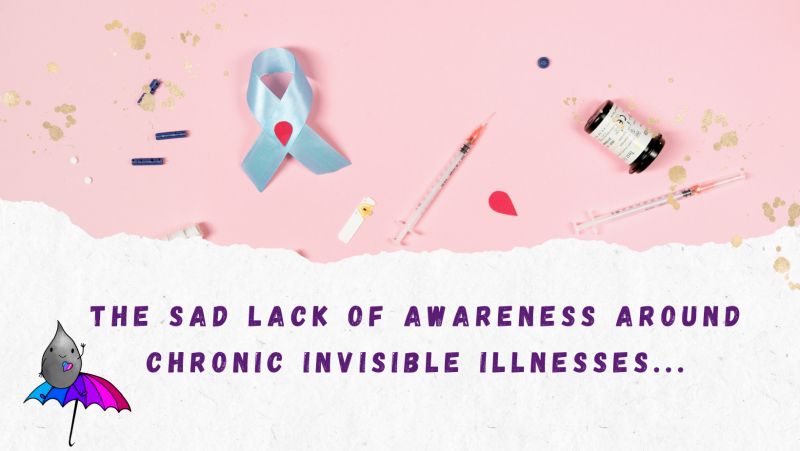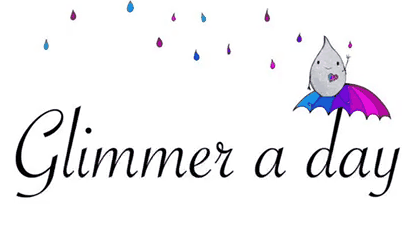Living With Invisible Illnesses

Do ‘awareness’ months and days work?
May is ‘Invisible Illness Awareness’ month, sharing the month with many other worthy causes. The 12th of May is ME/CFS and Fibromyalgia Awareness Day. Do these days work? Do they bring more awareness and funding for charities or research into illnesses or conditions? According to the Standford Social Innovation Review, the answer is unlikely and there can be downsides to awareness campaigns:
“Before exploring the most effective ways to create awareness, it’s important to understand the ineffective and even harmful effects that awareness can have. When done wrong, an awareness campaign carries four specific risks: it might lead to no action; It might reach the wrong audience; it might create harm; and it could generate a backlash. We will examine each of these risks in turn.”
Perhaps society has been so saturated with so many different awareness campaigns that people just don’t notice them anymore and we have ‘awareness fatigue’. Our social media are fast-paced, controlled by algorithms and advertising is king. Businesses or charities that have large marketing budgets are at a great advantage in getting their messages out there. Most people have causes that mean something to them- different kinds of diseases, mental health, animals, the environment, social change, and humanitarianism. It’s easy to understand why it is so difficult to gain traction for your particular interest but also can be difficult when you are passionate about something to comprehend apathy from friends, family and acquaintances.
Chronic and invisible illness awareness
Since it’s Invisible Illness Month let’s use this cause as an example. For years people who have suffered from Chronic Fatigue Syndrome, Fibromyalgia, POTS, Lupus, EDS etc. have had their illnesses ignored, they have been gas-lit by health professionals that it’s ‘all in your head’ or ‘you just need to lose weight and exercise more’ or sufferers in great pain arriving at ER only to be accused of drug seeking or a hypochondriac. There is a general societal level of ignorance about these conditions and what they entail. Sufferers are given a myriad of drugs to try and alleviate symptoms but the actual cause of the problem is not investigated or eventually put in the ‘too hard’ box. Since the unfortunate arrival of the Covid 19 Pandemic and Long Covid, there has been a rising awareness of the debilitating effects of Chronic Fatigue and more interest in researching it but sadly there is so much more that needs to be done.
The negative affects of chronic illness
Why has been very little research or funding into researching these conditions? Perhaps because they don’t kill you or just not seen as important or sexy enough. The conditions themselves may not kill you but they are incredibly life-changing. You can go from being a relatively healthy, fit individual with a full life to being a shell of your former self in constant pain, with extreme fatigue and many other horrible symptoms affecting your whole body and mind. Your mental health can be severely affected too as you struggle to adapt to your new circumstances and the changes to your lifestyle. Perhaps you are unable to work and support yourself financially which is extremely stressful. Illness can cause relationships to break down due to a variety of reasons. Maybe you have children and feel guilty for not being able to do all the things you want to with them. The illnesses may be ‘invisible’ but the long-lasting and negative effects are not.
You can read an interesting paper by Catherine Leedonn—Tackling the Invisible: The Hidden World of Invisible Illness—that goes into much more detail:
“We need people to recognise that our standard view of the world is incomplete and there is a large blind spot to the plight of those with invisible illness; the discrimination at personal and systemic levels; the loss of time, energy and money for friends, family and employers; the inefficiencies of our medical system; and the inadequate support systems at both emotional and financial levels.”
Why invisible illnesses are ignored or not taken seriously
When it comes to invisible illnesses and awareness sometimes making society aware is the least of our worries. Disappointingly it can be family and friends who don’t understand how much your illness affects you especially if you look fine on the outside. Other illnesses don’t have the same stigmas attached. After a cancer is diagnosed for instance, often friends and family rally around making meals or offering to clean/look after kids etc. while treatment goes on but of course this is not always the case. Chronic Illness sufferers are less likely to get much sympathy and support as the onset of illness and severity of symptoms can happen over a long period. Symptoms such as fatigue or pain are more likely to be dismissed as everyone gets tired or has had times where they felt pain but it is the extreme nature of the constant fatigue and pain that is misunderstood by others. Hidden Illnesses are usually chronic meaning they can’t be cured and so interest in your condition by others dwindles as their life goes on while the ill person is stuck in their smaller world unable to do things that they used to. Poor mental health also plays a part as chronic illness sufferers often have depression or anxiety alongside their physical symptoms causing them to draw back from others and reducing their ability to socialise.

What are the Glimmers?
It’s tough being chronically ill- physically, emotionally mentally, and financially. There are some glimmers though. You quickly find out who are your fair-weather friends, who for whatever reasons were unable or unwilling to be there for you and you can put them in the appropriate box. You also realise who are the keepers, those friends or family members who show they give a damn and regularly check-in. You learn to appreciate the good days when you have a little more energy and a little less pain. Since your body has forced you to slow down you have more time to appreciate the little things that you enjoy, a decent cup of coffee, sitting outside with your pet on your knee listening to the birdsong. The tough days when you are in a flare are incredibly difficult but these are the times when looking for your glimmers will be the most helpful as they will calm your brain and overwhelmed nervous system.
On your worst days look for the glimmer, on your best days be the glimmer.
